
by World Moms Blog | Jan 12, 2016 | 2016, Life Lesson, Middle East, Multicultural, Prejudice, Race, Refugees, Religion, Respect, World Moms Blog, World Voice
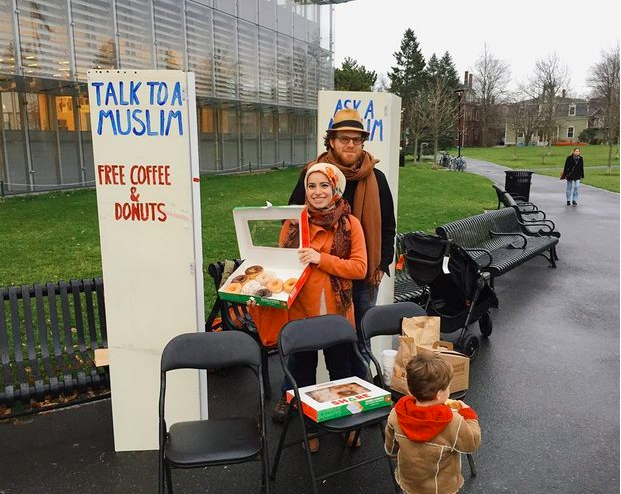
Photo: Courtesy of Mona Haydar
In the age of cellphones and social media, it’s very easy to disconnect from people without realizing you’re doing so. How many of us create walls subconsciously, especially if it concerns people of different nationalities we don’t usually associate with?
I was struck by a story of a woman who decided to set up a stand outside of a library in Cambridge, MA. Inspired by a story her husband saw on NPR titled “Ask an Iraqi”, Mona Haydar thought that it was important for her to establish a connection with those who may not know what’s it’s like to be a Muslim, especially a Muslim woman living in the United States.
For Haydar, setting up a stand titled “Talk To A Muslim” was a way for her to dispel any preconceived notions or stereotypes so many have of foreigners, especially of Muslim women.
With so many crises affecting different nationalities, in light of events happening in Syria, Haydar’s goal of creating a physical stand and waiting for people to approach her was a bold move since she had no clue how it would be received. What was surprising and hopeful was that people did stop by and spoke with Haydar, and that was a start. She was quite surprised to see how people did respond to her stand and while the reception was initially uncertain, it was enough for her to think about setting up the stand again.
In the current climate regarding people of cultures we aren’t familiar with, not willing to find out about them says more about us than them. There shouldn’t be a division of “them” and “us”, but unfortunately, there is.
How many times have we been guilty of giving in to fear of the unknown instead of taking a step back and dispelling the stereotypes we have learned about other cultures?
As someone who has had to answer questions about my nationality or religion over the years, the initial offense I felt has made me rethink of how people perceive me. Over the years, I have been mistakenly identified as either Korean or Japanese, rarely a Filipina. In addition, since I’m married to a Jewish man, I have been asked whether I’m a convert or adopted due to my Jewish maiden name, and to which I answer “no” to both. Answering these questions over the years, my frustration over being categorized primarily due to my physical appearance has made me realize that it’s not because of ignorance, but lack of communication. Asking questions and conversing about each other’s cultures would go a long way than being presumptuous about other people’s lives.
After reading about Haydar and seeing the NPR segment titled “Ask An Iraqi”, it made me wonder if we should put ourselves in Haydar’s shoes. Should we have to set up a stand in order to be understood or be compassionate towards others? Have we become so desensitized by our own prejudices that we have no room for being tolerant? I would hope not. Haydar’s stand may just be one form of starting conversations regarding one’s culture, but I think it’s an idea worth exploring. We might just realize that we may not look alike, but we all share the same intrinsic values of goodness towards humanity.
Read the original article regarding this post Here.
How do you think we can nurture better cross-cultural understanding?
This is an original post written by World Moms Blog Contributor Tes Silverman of The Pinay Perspective
World Moms Blog is an award winning website which writes from over 30 countries on the topics of motherhood, culture, human rights and social good. Over 70 international contributors share their stories from around the globe, bonded by the common thread of motherhood and wanting a better world for their children.
World Moms Blog was listed by Forbes Woman as one of the "Best 100 Websites for Women 2012 & 2013" and also called a "must read" by the NY Times Motherlode in 2013. Our Senior Editor in India, Purnima Ramakrishnan, was awarded the BlogHer International Activist Award in 2013.
More Posts

by Mannahattamamma (UAE) | Dec 30, 2015 | Cultural Differences, Feminism, Gun Violence, Holiday, Living Abroad, Middle East, Older Children, Peace, Religion, Terrorism, UAE, World Motherhood
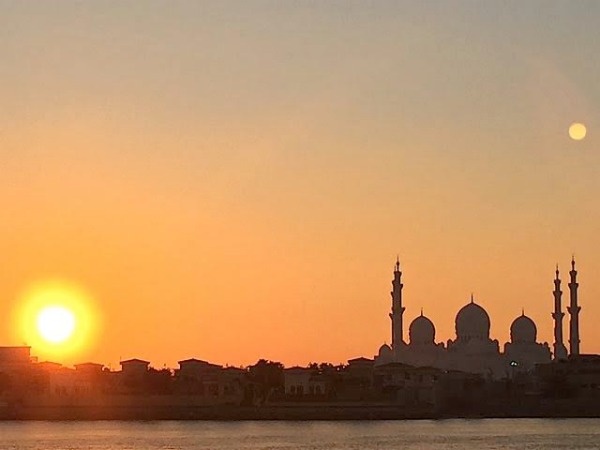
“Will we be safe there?” My 11 year old son asked me that question as we were discussing our winter holiday travel plans, and I suppose, given that we live in the UAE, his question might make sense. In the last few years, we’ve traveled to Jordan, India, Kenya – all places that have been in the news lately as sites of violence.
Where are we going for the winter holidays, you might wonder, that would elicit such a question?
The United States.
I’ll let you think about that for a minute.
Okay, true, his question was a bit of a joke – the question of travel safety has become a running gag in our household, in part because that question is always the first thing my mother (in Illinois) always asks us.
But this time, when he asked the question, none of us laughed. He’d asked us just after the last mass shooting, the one in San Bernandino. And think about that for a minute: I have to specify for you which shooting I’m talking about. Was it the one in Colorado Springs outside Planned Parenthood, or the one in Oregon, or the one…
In other countries, when you say “mass shooting,” there simply aren’t that many to choose from because in the aftermath of the tragedy, governments have changed the laws to make such events less possible. But not in the good ol’ US of A.
When I tell people in the States where I live, there are two questions I am always asked: do I have to “cover” and “do I feel safe?” The answers are “no,” and “yes.” People who didn’t worry about me strolling home after midnight in New York’s East Village in the late 1980s now seem dreadfully concerned about my safety here, in this part of the world, as I drive off to the mall.
Part of why we chose to live abroad with our children had to do with wanting to give them a cosmopolitan perspective on the world: we wanted them to experience other cultures and learn to be open to, rather than threatened by, difference. I know that in the US it is possible to live in cosmopolitan cities—we used to live in Manhattan, where children from many nations crowded into my kids’ classrooms—but it is a different experience to live in a place where “your” culture is not the dominant.
A little while back, for instance, my older son had some friends over so that we could all go to a water park in the afternoon. When I told them it was time to get ready to go, my son said “well, we have to wait a little bit because T. is in the other room doing his prayers.” T. comes from a devout Muslim family and his mother would have been pleased to know that T. didn’t miss a prayer time just because the water park called. And for my son and his other friends, T. doing his prayers was as matter-of-fact as if he’d been changing into his swimsuit, or drinking a glass of water. Ordinary.
Like many of us, at home and abroad, I wrestle with how to explain to my children why the United States can’t simply change its gun laws and why so many people in the country seem afraid of anyone who worships at a mosque rather than a church or a temple. The explanation in both instances seems to boil down to fear: fear of change, fear of difference, fear of that-which-is-not-me.
It’s not much of an explanation, but it’s the only framework I have to explain why Donald Trump, for instance, can still be considered a candidate for the Presidency.
I know that the demagogues like Trump do not speak for all the people in the United States, and that many, many people are outraged by gun violence, but alas, the picture of the country that travels outward to the rest of the world is one of violent, gun-toting Islamophobia – and it’s scary. For me the fear rests not in the thought that Trump will ever be President because I refuse to believe that his bilious self is actually electable. I hang on to that fact as ardently as I once hung on to my belief in Santa Claus. No, my fear rests in the fact that, according to a recent poll, Trump leads the group of Republican Party presidential hopefuls, with 35.8% of the vote.
THIRTY-FIVE POINT EIGHT?
Maybe there really isn’t a Santa Claus.
How do you explain what’s happening in the United States to your children?
This is an original post by World Mom, Deborah Quinn in the United Arab Emirates.
Photo Credit to the author.
After twenty-plus years in Manhattan, Deborah Quinn and her family moved to Abu Dhabi (in the United Arab Emirates), where she spends a great deal of time driving her sons back and forth to soccer practice. She writes about travel, politics, feminism, education, and the absurdities of living in a place where temperatures regularly go above 110F.
Deborah can also be found on her blog, Mannahattamamma.
More Posts
Follow Me:


by Ibtisam Alwardi | Dec 21, 2015 | 2015, Childhood, Family, Middle East, Oman, World Motherhood, Youth
Is it possible to raise children to be global citizens in a conservative society?
Is it possible to bring the ideas of globalization in a culture that might reject anything new?
Is it possible to raise children as global citizens, yet respect their own culture?
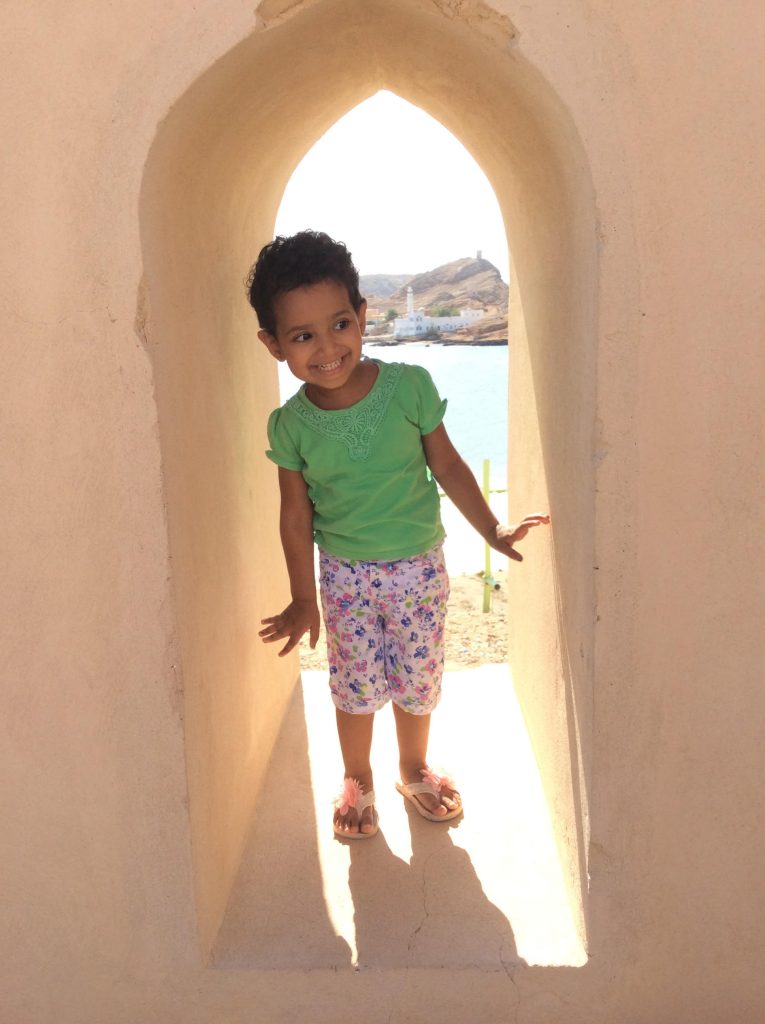 These are the questions that we as parents, caregivers or educators should be aware of, when raising/educating children in the current global world. For me, as a mother of three children in a conservative society, I believe it is not only possible but a necessity.
These are the questions that we as parents, caregivers or educators should be aware of, when raising/educating children in the current global world. For me, as a mother of three children in a conservative society, I believe it is not only possible but a necessity.
Extremism in any culture, I think, is partly a result of isolating a society from the world to the extend it rejects and fights anything that differs from them regardless of the reasons.
Therefore, some effort is needed. Our children are not only influenced by us as parents. They are influenced by all the other constituents of the society they evolve in especially.
As parents, we may start with ourselves. We may be culturally-sensitive, non-judgmental and educated to the differences around us. We may be very careful to what we say in front of children when they ask questions related to different cultures and ethnicity. We, ourselves, can be judgmental unfortunately sometimes towards a specific culture and may be careful with any words we utter in the presence of our children.
The other thing that I believe is crucial are resources. Books, television, internet programs, and after-school activities could be diverse. We are lucky to have diverse and a rich market that allows us to learn everything about anything. Travelling allows us more exposure to different cultures and learning opportunities.
I think that learning English (or any other language) at a young age provides more contact to different “diverse” materials. We do have more diverse materials in English than , say, in Arabic.
Charity works wonders in an interesting way too. You may involve your children in a charitable action into giving to others who are in another country or culture. This provides a learning opportunity, empathy towards others and a responsible child who believes he/she can make a change.
Preparing children to be global citizens is a must at the present. We will not be present at every step they take in their lives, but at least prepare them to manage better in a fast growing world.
What are your ideas to raise a global citizen?
This is an original post from our #WorldMom, Ibtisam from Oman for World Moms Blog.
Picture Credit to the author.
You can find more of her wonderful perspective on her blog: ibtisammusings.com.
Ibtisam (at Ibtisam's musings) is an Omani Mom of three, living in the capital city of Oman ,Muscat.
After working for ten years as a speech and language therapist in a public hospital, she finally had the courage to resign and start her own business. She had a dream of owning a place where she can integrate fun, play and 'books', thus the iPlay Smart centre (@iplaysmart) was born.
Currently she is focusing on raising awareness through social media about parenting, childhood, language acquisition. She started raising awareness on (the importance of reading) and (sexual harassment) targeting school-aged children.
Ibtisam enjoys writing, both in Arabic and English, reading and working closely with children.
She plans to write children books (in Arabic) one day.
Contact Ibtisam at ibtisamblogging(at)gmail.com.
More Posts - Website
Follow Me:




by Karen Williams | Dec 16, 2015 | 2015, Middle East, UAE, World Interviews, World Moms Blog
Where in the world do you live? And, are you from there?
Home for the moment is Abu Dhabi, UAE. Our family (husband, 2.5 year-old and yours truly) just moved here six months ago for my husband’s job. Originally from the tiny city-state of Singapore, we have been living a transitory life and have resided in four countries since 2007.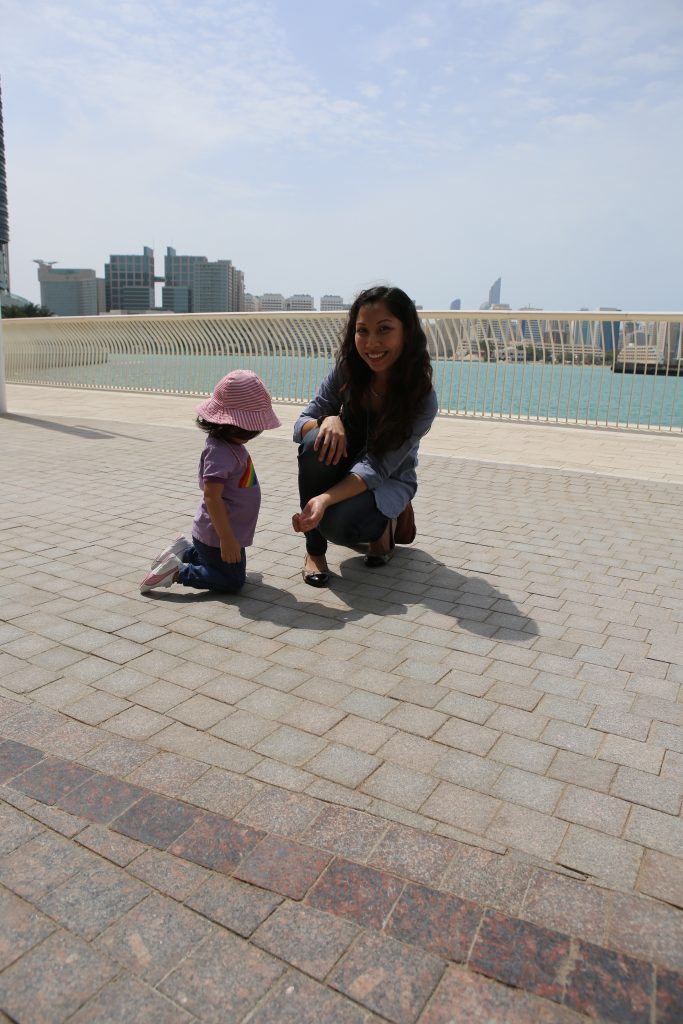
What language(s) do you speak?
English and Mandarin, and such basic French that I wouldn’t even call it speaking! While the official language of Singapore is Malay, today it is mainly used by some of the older generation, the Malays and a minority of other Singaporeans. The business language in Singapore is English and all schools instruct in English so this was what I grew up reading and speaking. In schools, you also have to learn a second language and although I managed to scrape by in my exams, I still always feel a little nervous and panicky when someone speaks to me in Mandarin. I also understand some Hokkien (another Chinese dialect) from listening to my maternal grandmother when I was a child. I never practised it very much and needless to say, I had numerous moments when things were lost in translation with my grandmother!
When did you first become a mother (year/age)?
In 2013, three days before I turned 32, my daughter made an early entrance into our lives. Since then, we’ve never had a dull or quiet day.
Are you a stay-at-home mom or do you do other work in or outside the home?
By choice, I am a stay-at-home mom. Initially, I left my job to focus on conceiving. When my daughter was born, I didn’t have any help with her and was her main care-giver. And now, she is with us on her first overseas posting, and I’m happy to be at home with her to maintain some sort of consistency. I remember being a teenager and telling my teacher that I wanted to be a physical education teacher (I ended up teaching English Lit, but close enough) until I had a family and then I would stay home with my children. Somehow, things turned out the way I had dreamed, and I am so very thankful that I can make the choice to stay home with my daughter.
Why do you blog/write?
I’ve only started writing fairly recently, mostly as a means to keep my brain working especially when my days revolve around nursery rhymes and Disney songs on repeat. I’ve found it rather cathartic and calming, and it gives me a chance to stop and gather my thoughts. Blogging and reading other blogs also provides a platform for an exchange of ideas, different perspectives and very importantly, support between friends and fellow mums.
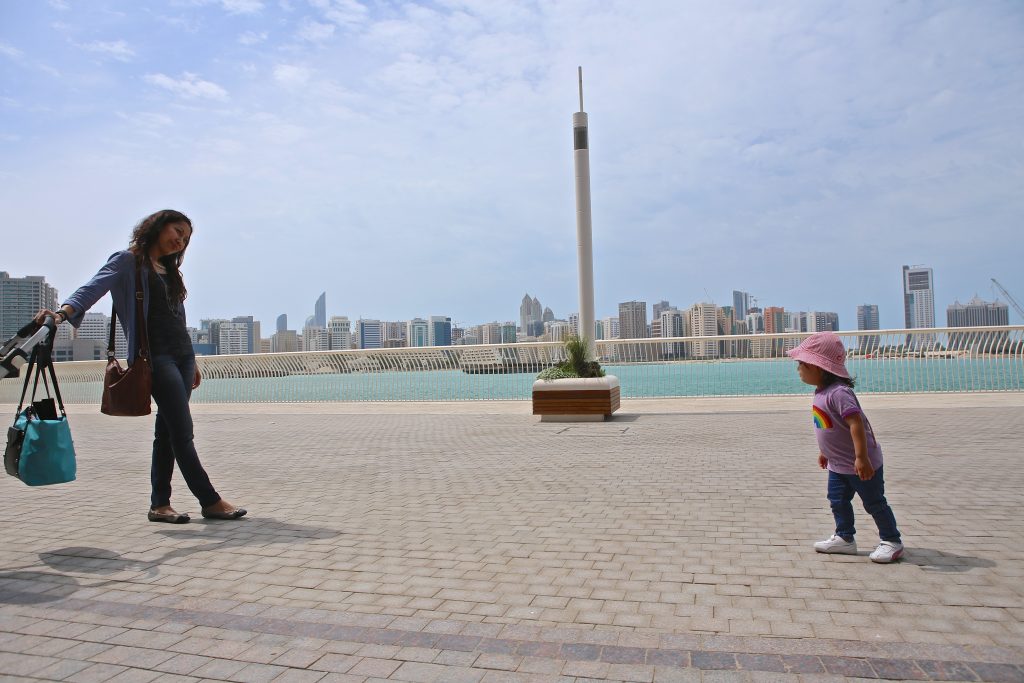
What makes you unique as a mother?
As a mother in the parenting game, I am like any other mother who wants the best for her child. My uniqueness lies in one fact, that I am my daughter’s mummy, that I know her better than anyone else, and that I love her differently from anyone else.
What do you view as the challenges of raising a child in today’s world?
Because we move from country to country ever 3-4 years, and we are away from our family a lot, I worry that my child will lack permanence, a connection with others and a sense of rootedness. “Where is home?” and “Where do I belong?” will be questions that she will need to find answers to. And hopefully, as parents, we will be able to provide safety and security at home, so that she can face other challenges as we move around.
How did you find World Moms Blog?
When I first started writing, we had just moved away from Singapore, and I was searching for other blogs for expat parents; I wanted to find some support from mums who were living abroad with their young kids. When I came across World Moms Blog, I was immediately drawn to it. Not only did it feature mothers from across the globe, it highlighted many inspirational issues and causes, and gave others a rare glimpse of mums living, working and parenting in different parts of the world. With each post I read, I learn something new and am spurred to want to do more than I am doing. There’s no better place to be inspired and uplifted by other mums!
This is an original post to World Moms Blog by KC in Abu Dhabi, United Arab Emirates.
Photo credits to the author.
Karen is a Singaporean with an 8 year-old daughter who’s a little fire-cracker version of herself. She’s spent the last 15 years in her various roles of supportive trailing spouse, mother, home-maker and educator. Having experienced six international moves alternating between overseas postings and her home country of Singapore, Karen considers herself a lover of diverse foods and culture, and reckons she qualifies as a semi-professional packer. She is deeply interested in intercultural and third-culture issues, and has grown immensely from her interactions with other World Mums.
Karen is currently living in Brunei with her family.
More Posts

by World Moms Blog | Nov 24, 2015 | 2015, Girls, Guest Post, Health, Middle East, Refugees, World Moms Blog, World Voice
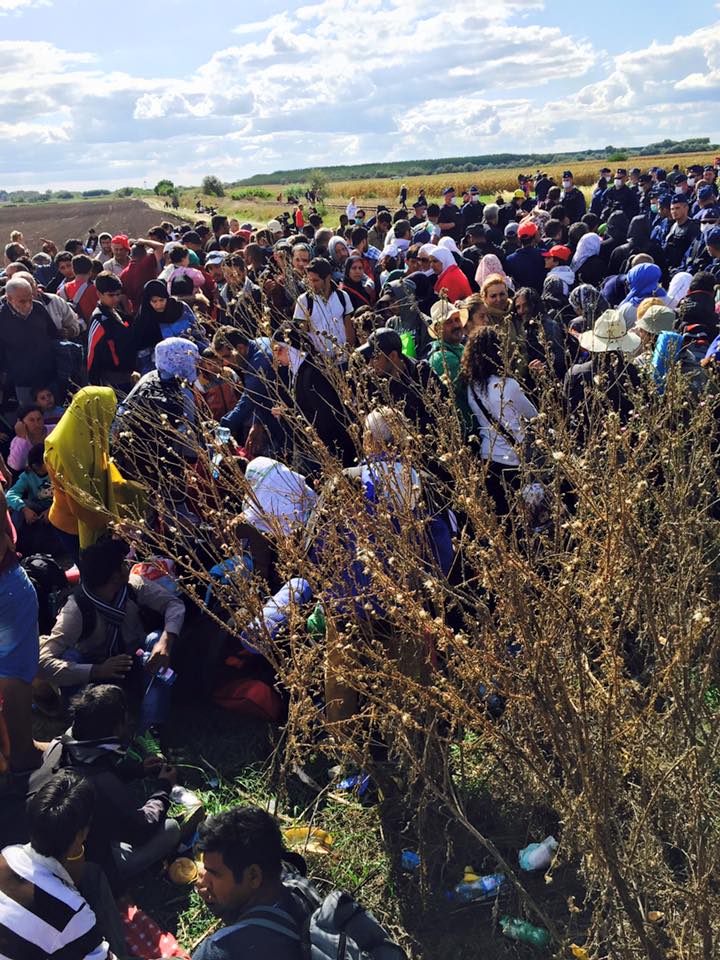
Photo Credit: Jennifer Lovallo
What would you take with you if had to leave at a moment’s notice? Other than the clothes on my back and possibly some photos of my family, there would be nothing else that I would carry with me. For those fleeing dangerous situations, as in the case of Syrian refugees, so much emphasis is placed on the welfare of men and children, but what about the needs of women, especially when it involves their hygiene?
In Essex, England, three women are making a difference in the lives of Syrian women with regard to this issue. Helen McDonald, Megan Saliu and Helen Pudney founded SOS Calais, or Supporting Our Sisters in Calais. Together they organized drives to collect sanitary pads and had them delivered to the one of the biggest refugee camps in Calais, France where women make up 10% of the population. Donating food, water and personal products are just as necessary, but for women, menstrual products are crucial.
For most women, menstrual products are easily accessible, but for women who have been displaced due to crisis situations, access is virtually impossible.
In addition to access, there is the question of safety for these women. The women McDonald, Saliu and Pudney encountered in Calais were in their twenties and outnumbered by men in the same camp. These women are forced to look out for themselves to avoid harassment due to minimal or no security or support for them otherwise. Providing these women with products specifically for them gives them a sense of inclusion and empowerment.
For someone like me who has experienced moments of embarrassment or horror for not having sanitary pads when I’ve needed them, it’s quite disconcerting to know that these women are forced to find alternative means to take care of their needs, especially with menstrual products. It is an unfortunate byproduct of being torn from one’s home or country as a result of war or oppression and it is unrealistic to think that women and children are less affected than men.
Women in these environments become targets as a way to weaken their resolve in achieving independence and have to rely on others for help or do without. With the crowdfunding page created by McDonald, Saliu and Pudney, they intend to raise awareness of how crucial it is to provide these women with their needs. It is up to us, and the rest of the world, to step up and ensure that everyone, especially women in crisis environments, get their needs met. It’s the least we can do for them and future generations.
Read the original article that inspired this post, and find out more about this fundraising effort, and how you can help.
What other basic needs would you have if you had to flee on short notice?
This is an original guest post written by Tes Silverman for World Moms Blog.
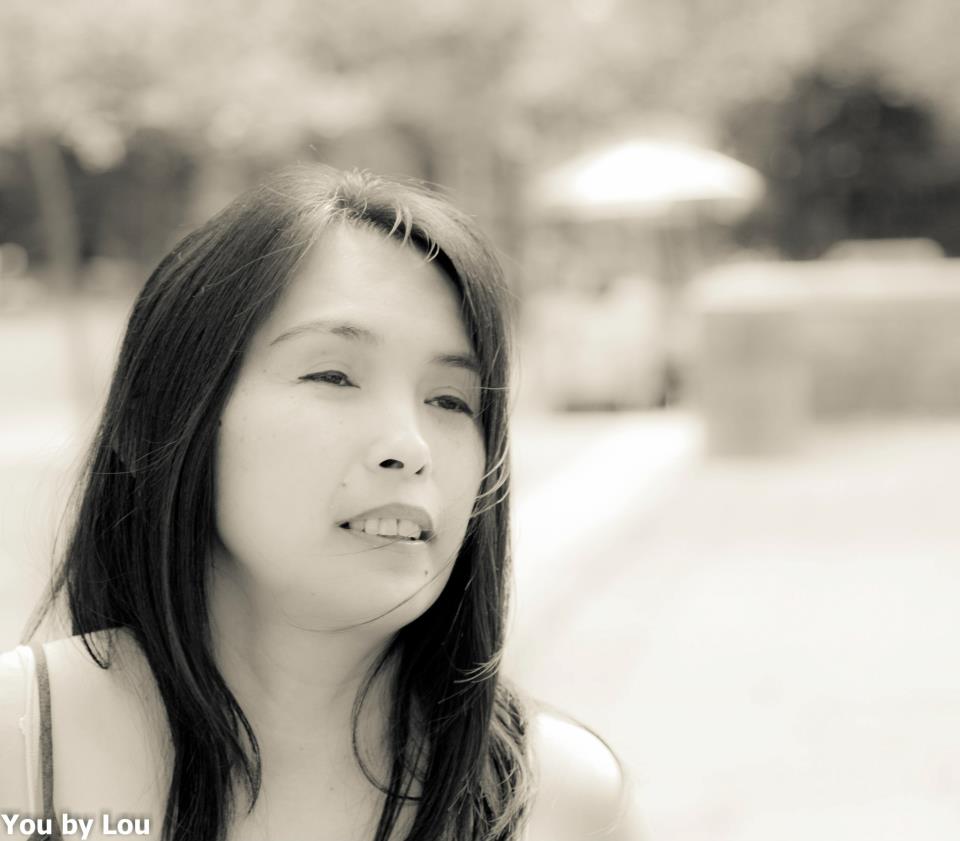 Tes Silverman was born in the Manila, Philippines and has been a New Yorker for more than 30 years. Moving from the Philippines to New York opened the doors to the possibility of a life of writing and travel. Before starting a family, she traveled to Iceland, Portugal, Brussels, and France, all the while writing about the people she met through her adventures. After starting a family, she became a freelance writer for publications such as Newsday’s Parents & Children and various local newspapers. Four years ago, she created her blog, The Pinay Perspective. PinayPerspective.com is designed to provide women of all ages and nationalities the space to discuss the similarities and differences on how we view life and the world around us. As a result of her blog, she has written for BlogHer.com and been invited to attend and blog about the Social Good Summit and Mom+Social Good. Currently residing in Huntington, NY with her husband, sixteen year-old daughter and nine year-old Morkie, she continues to write stories of women and children who make an impact in their communities and provide them a place to vocalize their passions.
Tes Silverman was born in the Manila, Philippines and has been a New Yorker for more than 30 years. Moving from the Philippines to New York opened the doors to the possibility of a life of writing and travel. Before starting a family, she traveled to Iceland, Portugal, Brussels, and France, all the while writing about the people she met through her adventures. After starting a family, she became a freelance writer for publications such as Newsday’s Parents & Children and various local newspapers. Four years ago, she created her blog, The Pinay Perspective. PinayPerspective.com is designed to provide women of all ages and nationalities the space to discuss the similarities and differences on how we view life and the world around us. As a result of her blog, she has written for BlogHer.com and been invited to attend and blog about the Social Good Summit and Mom+Social Good. Currently residing in Huntington, NY with her husband, sixteen year-old daughter and nine year-old Morkie, she continues to write stories of women and children who make an impact in their communities and provide them a place to vocalize their passions.
World Moms Blog is an award winning website which writes from over 30 countries on the topics of motherhood, culture, human rights and social good. Over 70 international contributors share their stories from around the globe, bonded by the common thread of motherhood and wanting a better world for their children.
World Moms Blog was listed by Forbes Woman as one of the "Best 100 Websites for Women 2012 & 2013" and also called a "must read" by the NY Times Motherlode in 2013. Our Senior Editor in India, Purnima Ramakrishnan, was awarded the BlogHer International Activist Award in 2013.
More Posts

by Mama B (Saudi Arabia) | Nov 19, 2015 | 2015, Middle East, World Moms Blog, World Motherhood
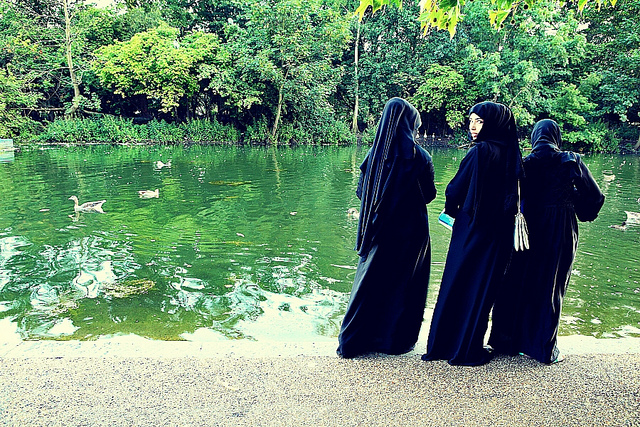
Growing up I never had to see any women around me struggle with finding a ‘work life balance’ because women didn’t work much. They were either teachers or worked in hospitals. A few women owned their own businesses but had to have men run them. And the large majority of women I knew worked for the non profit sector running charities or working in them. I would say these charities were where I saw Saudi women working the most. They were a force to be reckoned with.
We also saw women doctors. I remember going to the eye doctor to get lenses for the first time when in walked a tall, thin woman wearing a niqab (face cover with opening for eyes). She was the opthemologist. Her hands, which were the only body parts I could see, were beautiful.
Her nails immaculate (being a life long nail bitter I notice these things). But women who worked in hospitals sometimes had a stigma because they worked in a mixed environment. I later learned that the majority of women who wore niqab’s in the hospital only did so to avoid this stigma and indeed never wore them anywhere else!
I went to an all female school and was taught exclusively by women, but the majority of them were Syrian. One year I remember distinctly there was a surge in the number of Saudi women in managerial positions and some teaching positions in school. They were always well coiffed, smelled nice, wore nice shoes and had make up on. They didn’t look like the typical teachers we were used to seeing, harried and there to do a job.
Then in 2010 things began to change. Mainly because of huge reform in laws that used to restrict women working in Saudi. This was the beginning of the King Abdullah era which saw the number of women in the workforce rise from 55,000 to 454,000 in 3 years! Suddently, women were in the work force, working along side men in many cases.
There was a mixed reaction to this change. Families could see the importance and benefit of adding another income, but at the same time, were conflicted about the women of the family going into the work environment and gaining independence. The women who were already in the work force were a huge support for the women newly coming into it. But men had a hard time working with women. Some didn’t respect them, others had no idea what do with them or where to look or how to address them. In the case of my cousin, who is the head of a non profit organisation, some men flat out refused to talk to her util they realised that they would not be offered an alternative and either had to work with her of shove off.
Then there is me. I have always felt the need to do something.
Since I got married at the age of 22 I have been planning, and researching and imagining this business I would open. I have files and files of papers printed, notes scribbled, suppliers contacted over the years until, finally, my dream was realised. Before opening my business it was a breeze working on it while being a ‘good’ wife and a ‘good’ homemaker and a ‘good’ mother. My time was my own and I worked when I liked. And it was still a dream… not a commitment.
Then I opened… and my life changed. I cannot speak for the women for whom work is a necessity. The ones who’s families depend on them to live. I do not think they have the pleasure of having this ‘life work balance’ conversation because without work there would be no life. Such as Um Ahmed who worked for a while as a cleaning lady at my center. She was the sole breadwinner of her family. When I met her she was in her late 30’s, she had 5 children, none of which worked. What blew me over was when she told me she would have to take a day off or leave early every few weeks as she was learning to read and write and wanted to sit her exams. Um Ahmed left a year after working for me as she got pregnant and had to stay home with her 6th baby.
In my case, working was a choice. It did come from a need to realise a dream I truly believed would be beneficial to society even in a small way. It was a necessity in that sense but it was very much a choice I made. No one is relying on any money I could potentially make (God willing at some point) from my business.
Society here puts the burden of making everything work on the woman. If the marriage fails they look at what the woman didn’t do. If the children turned out messed up they looked at the mother. If the house was less than pristine they looked at the wife. If the husband strayed they say “did you see how his wife let herself go?’.
I remember talking to a school teacher as we sat in a restaurant with her 11 month old and a few friends. She looked tired and harried while she bobbed her child on her knee and told us all about how when she gets home from work she makes dinner immediately so she has time to shower and fix her hair and get dressed up for her husband before he got home from work. She tried to make sure her son was calm and clean for his father.
She even gave us suggestions of things to do to make our husbands lives easier and more interesting (from having him walk in on you wearing your wedding dress to having him walk in on you wearing nothing… not sure what she did with her son in these instances).
She said “you know, we have to make sure they are happy and comfortable”, and I said “who makes sure you are happy and comfortable?”, and she looked surprised, then laughed at the absurdity of it. I went on saying “what little things does he do for you? take you out to dinner? Give your son a bath? Help with the house work?” she didn’t like this line of questioning and thought I was being rude I think so I dropped it.
In our society women must look beautiful for their husbands. And if you are lucky then you have a husband who at least tries to look presentable for you. I remember going to see a child counsellor when I was pregnant with my second child because of an anxiety issue my son had. I walked into her office, 8 months pregnant with my daughter, and talked to her about my son.
Somehow we ended up talking about me and about how I needed to make an effort in the way I look! She said “why don’t you have any makeup on? did you husband see you like this before you left the house?” Needless to say I left the office and never came back.
But it goes without saying that if you, like me, work because you want to work not because you have to work, and that work means you will not be perfumed, creamed and coiffed and wide awake for your husband when he comes back from seeing his friends at night, then you have failed. If your house is not totally impeccable then you have failed. If you don’t look like you stepped out of some sort of magazine at least 85% of the time then you have failed.
We have not entered, nor do I think we will ever, the phase of being proud of our mommy pants and the fact that we look tired because, well, we work hard and we are tired. Regardless of how hard you work or how much you have accomplished you will always be expected to maintain yourself. And in most cases it is down to you to make life interesting, entertaining and comfortable for your husband and children.
How do I feel about this? Even though, in the light of how much I have put into this business and how obsessed I was when starting it and how supportive my husband has been, (He only asked me to shut it down once when we were on vacation and I spent my whole time Skyping the staff.) I feel like I am failing probably about 60% of the time.
My husband works from home, and therefore, sleeps late. This means that I sleep late because I love spending time with him one on one. And by the time my kids are in bed he would have gone out to see his family or friends, and I would do the same. On most nights I would go out just to avoid falling asleep on the couch or in some instances I would fall asleep with my kids do and have a late nap till her comes home!
How is your life similar? How is your life different?
This an original blog post by World Mom, Mama B. of Saudi Arabia. You can also find her at her blog, YaMaaMaa.
Photo credit to Roberto Trombetta. This photo has a creative commons attribution noncommercial license. It has not been altered.

Mama B’s a young mother of four beautiful children who leave her speechless in both, good ways and bad. She has been married for 9 years and has lived in London twice in her life. The first time was before marriage (for 4 years) and then again after marriage and kid number 2 (for almost 2 years). She is settled now in Riyadh, Saudi Arabia (or as settled as one can be while renovating a house).
Mama B loves writing and has been doing it since she could pick up a crayon. Then, for reasons beyond her comprehension, she did not study to become a writer, but instead took graphic design courses. Mama B writes about the challenges of raising children in this world, as it is, who are happy, confident, self reliant and productive without driving them (or herself) insane in the process.
Mama B also sheds some light on the life of Saudi, Muslim children but does not claim to be the voice of all mothers or children in Saudi. Just her little "tribe." She has a huge, beautiful, loving family of brothers and sisters that make her feel like she wants to give her kids a huge, loving family of brothers and sisters, but then is snapped out of it by one of her three monkeys screaming “Ya Maamaa” (Ya being the arabic word for ‘hey’). You can find Mama B writing at her blog, Ya Maamaa . She's also on Twitter @YaMaamaa.
More Posts















 Tes Silverman was born in the Manila, Philippines and has been a New Yorker for more than 30 years. Moving from the Philippines to New York opened the doors to the possibility of a life of writing and travel. Before starting a family, she traveled to Iceland, Portugal, Brussels, and France, all the while writing about the people she met through her adventures. After starting a family, she became a freelance writer for publications such as Newsday’s Parents & Children and various local newspapers. Four years ago, she created her blog,
Tes Silverman was born in the Manila, Philippines and has been a New Yorker for more than 30 years. Moving from the Philippines to New York opened the doors to the possibility of a life of writing and travel. Before starting a family, she traveled to Iceland, Portugal, Brussels, and France, all the while writing about the people she met through her adventures. After starting a family, she became a freelance writer for publications such as Newsday’s Parents & Children and various local newspapers. Four years ago, she created her blog, 




